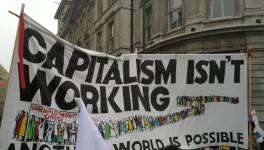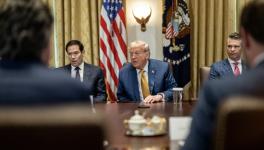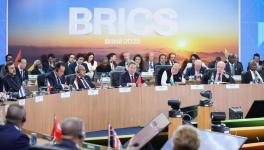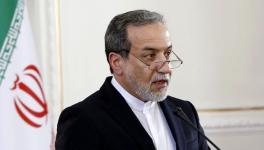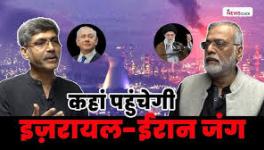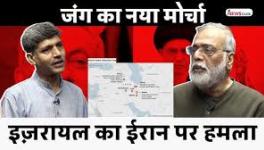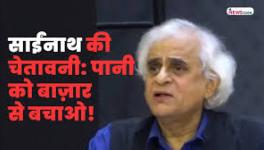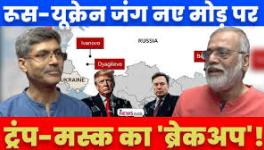Hanoi summit thwarted by an uncompromising US
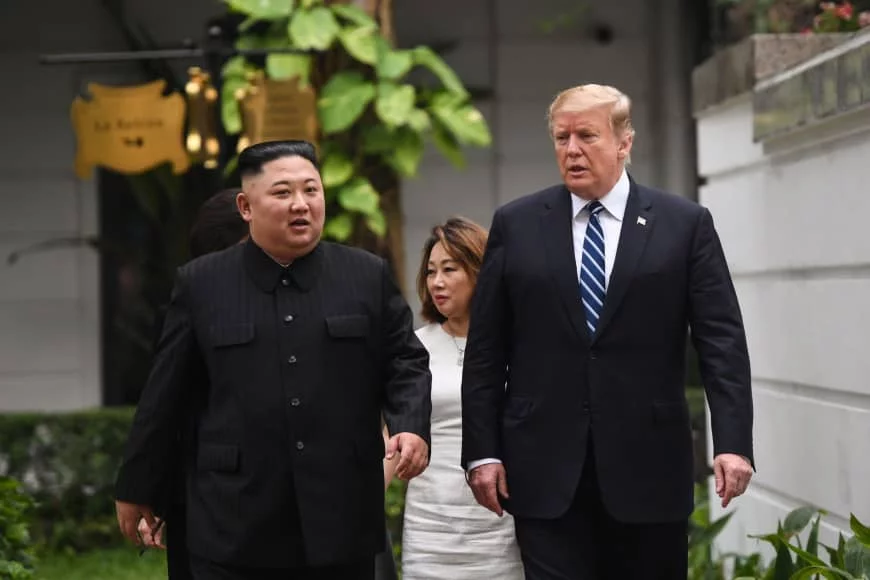
North Korea offered to dismantle all the nuclear reactors, including its sole known plutonium source, on the condition that the blockade is lifted in return (Photo: AFP/JIJI)
The second meeting between the US president, Donald Trump, and the North Korean chairman, Kim Jong-un, at the two-day summit in Vietnam’s capital city of Hanoi ended on the afternoon of February 28 without reaching any agreements.
North Korea offered to dismantle all the nuclear reactors in the Yongbyon Nuclear Scientific Research Center, which is the sole known source providing plutonium for its nuclear program, on the condition that the US-led international sanctions against the country are lifted in return.
The US, which has sought to paint the North Korean possession of nuclear weapons as an existential threat to the world, rejected the offer and effectively called off the talks midway. As a result, the scheduled joint statement signing ceremony and the working lunch were cancelled.
In the first Hanoi summit in Singapore, the two leaders committed to work together towards denuclearization of the Korean peninsula. Many, including South Korea, had expected that the second meeting would produce agreements which will break the stalemate that had set in due to different expectations from the two sides.
While the US has been insisting that North Korea should completely dismantle its nuclear program before the sanctions can be lifted, and a peace treaty could be signed, North Korea expects a reciprocal process where every step it takes towards denuclearization will be corresponded with a step by the US towards ending the sanctions and normalizing diplomatic relations.
Since the previous summit in June 2018, North Korea has stopped missile testing and suspended the operation of the nuclear reactors in Yongbyon. While some US press reports claimed that the reactors are still operating, the analysis of satellite imagery shows otherwise.
However, sanctions have continued choking the country’s economy, and so have the war games that US carries out in the region using live ammunition jointly with South Korea, despite Trump’s complaint that they are too costly. Kim’s demand for a peace treaty to put a formal end to the Korean war in order to reassure the regime that it faces no security threat from the US post denuclearization has also been rejected.
Meanwhile, the US sanctions are not only suffocating North Korea’s economy but also prohibiting South Korea from pursuing the joint ventures which it is seeking with the North.
US intransigence has been a disappointment not only to North Korea but also to the South, which the US claims to be protecting from aggression by Kim’s regime. Only two days before the Hanoi summit, South Korea expressed its expectation that an end-of-war-agreement would be signed between US and North Korea.
The president of South Korea, Moon Jae-in, and Kim met in September last year to discuss the way forward for denuclearization, ending of military hostilities, establishing of economic relations and eventual reunification of the divided nation. Both sides agreed to seek an end-of-war agreement from US, which was defined as a political declaration marking the beginning of the process towards a final peace treaty.
However, the Hanoi summit was called off without any such declaration being made. “It was a shock. We are trying to figure out what happened,” a South Korean diplomat reportedly said. A presidential spokesperson added, “We do feel regret that President Trump and Chairman Kim Jong-un could not reach complete agreement at today’s summit.”
In a phone call with Trump after the summit, Moon urged for a face-to-face meeting with the former to discuss a way forward, to which Trump has reportedly obliged.
Get the latest reports & analysis with people's perspective on Protests, movements & deep analytical videos, discussions of the current affairs in your Telegram app. Subscribe to NewsClick's Telegram channel & get Real-Time updates on stories, as they get published on our website.









